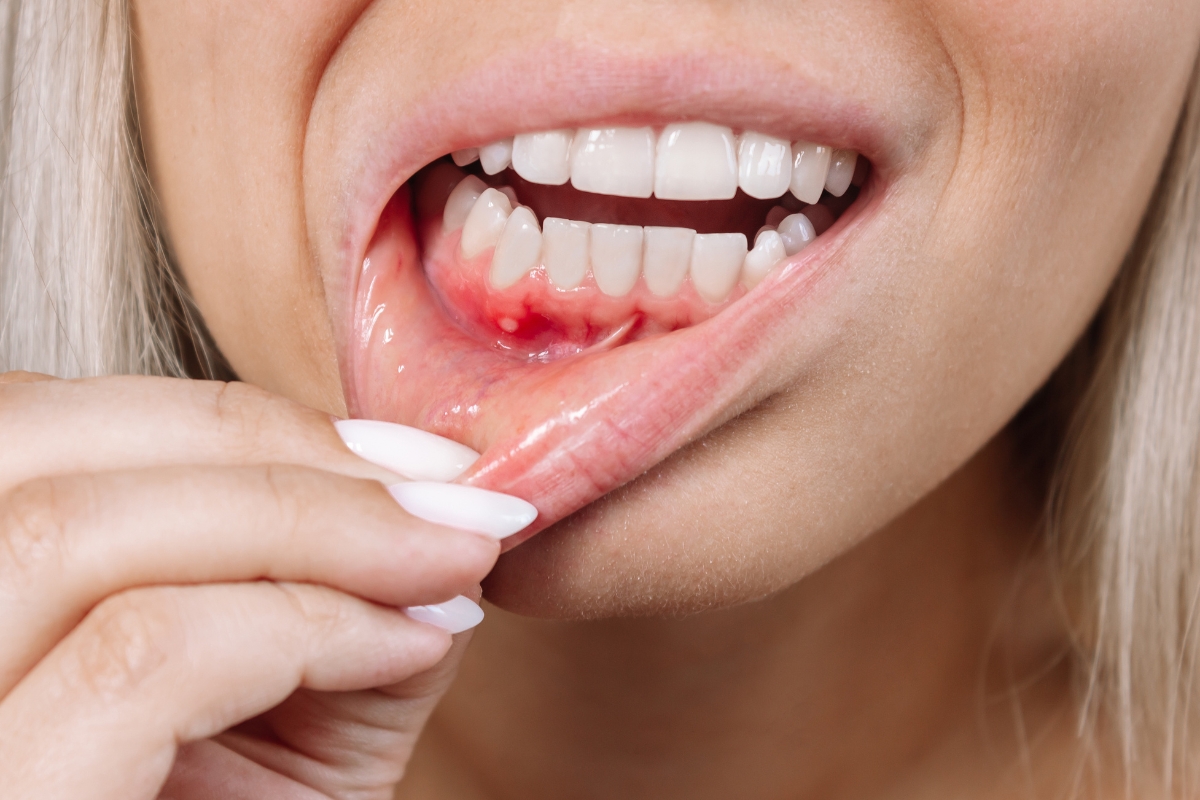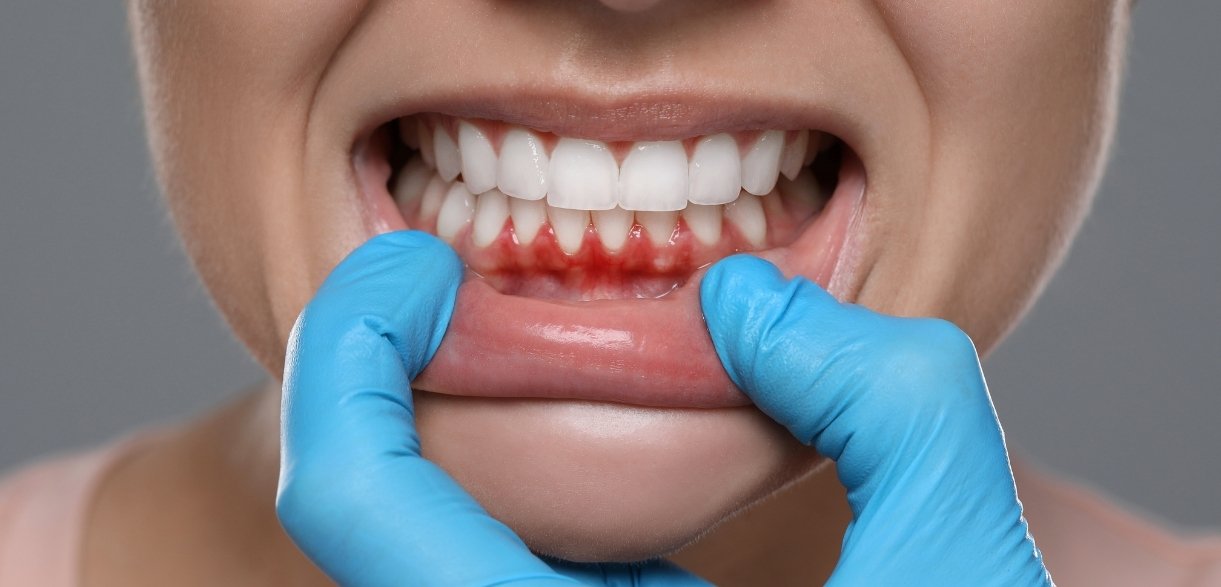Call: 281-955-0251
What Are The Leading Causes Of Gum Disease?

By Winning Smiles Dental
Gum disease is more common than many people realize, yet it often goes unnoticed until it’s too late. You might not think twice about your gums unless there’s pain, but they are crucial to your oral health. So, what exactly causes gum disease, and how can you prevent it before it gets out of control? Let’s dig into some common culprits and explore ways to keep your gums healthy.
1. Poor Oral Hygiene Habits
It might seem obvious, but brushing and flossing correctly—and regularly—are your first line of defense against gum disease. When you neglect your oral hygiene routine, bacteria in your mouth get the upper hand, leading to plaque buildup. Plaque is that sticky, colorless film that forms on your teeth, and if it’s not removed, it hardens into tartar. Once tartar takes hold, it becomes a breeding ground for bacteria that irritate your gums.
- Brush twice a day for two minutes.
- Don’t forget to floss daily to remove hidden food particles.
- Regular dental check-ups and cleanings are vital to catching issues early.
Skipping these basics? That’s a fast track to gum disease, making daily care non-negotiable for healthy gums.
2. Smoking and Tobacco Use
Here’s a fact: if you smoke or use tobacco, you’re at a much higher risk of developing gum disease. Nicotine limits the blood flow to your gums, which makes it harder for them to heal after infections or damage. Plus, tobacco decreases your immune response, leaving your gums vulnerable to bacteria.
Tobacco use can:
- Weaken gum tissue.
- Prevent early detection of gum disease (due to reduced bleeding, a key warning sign).
- Increase the risk of more severe gum disease (periodontitis).
Stopping tobacco use can drastically reduce your chances of needing periodontal therapy in Houston. If quitting smoking feels daunting, consider it one of the best things you can do for your gums and overall health.
3. Hormonal Changes
This may surprise some, but hormonal fluctuations can directly impact gum health. Women are especially vulnerable to gum disease during times of hormonal change—like puberty, pregnancy, or menopause—because hormones can make gums more sensitive and prone to inflammation.
You might notice more bleeding or swelling during these times. While these changes aren’t entirely avoidable, it’s important to stay proactive:
- Keep up with your oral hygiene routine.
- See your dentist regularly, especially if you notice gum changes.
Hormones may be tricky, but your routine doesn’t have to be. Stay on top of dental care, and you’ll keep your gums in check.
4. Chronic Stress
Believe it or not, stress can be one of the causes of gum disease. When you’re stressed, your body produces higher cortisol levels, which weakens your immune system. With a compromised immune response, your body has a harder time fighting gum infections and inflammation.
Stress can lead to:
- Bruxism (grinding your teeth).
- Poor diet choices (sugary, unhealthy snacks).
- Reduced focus on oral care.
Learning to manage stress through relaxation techniques or lifestyle changes can help protect your gums. Sometimes, taking a step back and caring for your mental health can benefit your physical health.
5. Genetics
Yes, gum disease can run in the family. If your parents or siblings have a history of gum disease, you might be genetically predisposed to it. That doesn’t mean you’re guaranteed to get gum disease, but you’ll need to be extra vigilant with your oral care routine.
While you can’t change your genetics, you can take preventive action:
- Stay on top of dental appointments.
- Use products recommended by your dentist that target gum health.
- Consider Houston periodontal therapy for a personalized prevention plan.
Even if gum disease is in your family, it mustn’t be your fate.
6. Poor Diet and Nutrition
Your diet affects every part of your body, including your gums. Consuming too much sugar, processed foods, or a diet low in essential nutrients can make your gums more susceptible to infections. A poor diet can:
- Increase plaque buildup.
- Reduce your body’s ability to fight infection.
- This leads to inflammation, making it one of the possible causes of gum disease.
For healthier gums, try incorporating:
- Leafy greens are rich in vitamins and minerals.
- Crunchy fruits and vegetables that naturally clean your teeth.
- Foods rich in antioxidants, like berries and nuts, help fight inflammation.
7. Medical Conditions
Certain medical conditions, such as diabetes or heart disease, can increase your risk for gum disease. Diabetes, in particular, affects your body’s ability to process sugar, which can cause high blood sugar levels and lead to more bacterial growth in the mouth. Heart disease and gum disease are also linked—research suggests that inflammation in the mouth can spread to other parts of the body.
Managing your oral and overall health is crucial if you have a chronic condition. Keep your dentist informed about your medical history; they can work with you to minimize your risk.
8. Medications
Some medications can have side effects that affect gum health. For example, certain drugs can cause dry mouth, which reduces saliva flow in the mouth. Saliva is essential for washing away food particles and neutralizing harmful acids. Without it, the mouth becomes a breeding ground for bacteria, leading to gum disease.
Medications that may impact your gum health include:
- Antihistamines.
- Antidepressants.
- Blood pressure medications.
If you suspect your medication affects your gums, speak with your dentist. They may recommend solutions, like special mouthwashes or treatments, to counteract dry mouth.
Prevention Is Key
Avoiding gum disease isn’t impossible—it’s all about staying consistent with your oral care and being mindful of your lifestyle choices. If you notice any signs of gum trouble—like redness, swelling, or bleeding—don’t hesitate to get periodontal therapy Houston. Early intervention is your best defense against gum disease and can help you get back on track before things worsen.
Gum disease doesn’t have to be inevitable. By staying aware of the leading causes of gum disease and taking proactive steps, you can protect your gums and enjoy long-lasting oral health. Whether quitting tobacco, managing stress, or eating a balanced diet, the key is consistency in your efforts. Should gum disease develop, consult a dental specialist to tackle it head-on.

